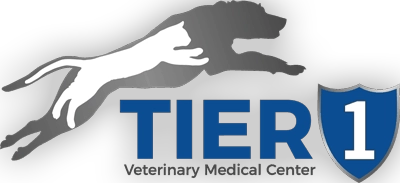Marijuana, THC, pot, grass, 420…by any other name, it is no friend of pets. Dogs don’t dab, cats don’t chill, and no hot-boxing allowed. Veterinarians and our staff don’t care what your personal choices are; marijuana is legal in many states now, and we don’t judge (much) if your pet swiped some and is showing signs of THC toxicity. Knowing the culprit upfront helps us, your animal, and your bottom line bill. All joking aside, THC is toxic to animals and — in severe cases — can cause seizures and death.
Having practiced in multiple states where marijuana has been legalized, THC toxicity in pets (pot tox) is something I’ve seen on a weekly basis. Edibles are an obvious culprit, sometimes dug out of the trash, fresh-baked and cooling on the counter, or stored in a reachable space. But pets — especially dogs — have also been known to ingest the plant itself, buds, roaches, ash, bong water, concentrate, spliffs, blunts, dabs, and pretty much any other form you can think of. Unfortunately, I have been party to a few pets outing some not-so-sneaky teenagers and sometimes even a spouse or grand-paw-rent.
Symptoms of THC Toxicity in Pets
Pot toxicity has some fairly consistent clinical signs, and although other toxins can mimic some of the symptoms, the presence of a few of them together is fairly distinctive.
Clinical signs of THC toxicity in pets:
- Bradycardia (low heart rate)
- Hypothermia (low temperature)
- Hyper-reaction to visual stimuli (flinchy)
- Weakness, depression
- Ataxia (uncoordinated movement)
- Leaking urine
- Vomiting
In more severe cases:
- Muscle tremors
- Seizures
- Coma
- Death
The symptoms can start to show anywhere from 5 minutes to 12 hours after ingestion, depending on the form ingested and concentration, and can last anywhere from a few hours to 3 days.
Most pets are brought to emergency care because the owners think they may have had a seizure, as they are jerking around, twitching, falling over, and urinating on themselves. Fortunately, most cases are not life-threatening and the animal recovers with basic decontamination care, sometimes requiring hospitalization. If the animal is lucky, and it’s a mild case of toxicity, it’s still an expensive and very stressful lesson to learn while you wait to hear that your pet is going to be okay. The wait is shorter, and chances are the bill will be smaller if we know the culprit and can assess the immediate threat. If you’re genuinely unsure if your pet could have ingested THC, there are urine tests available. While these are not infallible, they can give us a good idea.
Help Us Help Your Pet: Be Honest
Given all of this information and despite the legalization in many states, there are still frequent cases of owners refusing to admit that their pet may have had access to THC products. They are adamant that if it is in the house, it was not accessible to their pet. They “keep it in a sealed container up high.” Or they flat out deny that they have or use it. Sometimes they even blame neighbors or kids for throwing it over the fence. Because that’s what’s expected when people have a little extra, unwanted weed…right?
If these symptoms are not associated with a known THC toxicity, they can indicate a much more sinister toxin or a severe neurological disorder. When faced with the daunting prospect of a full neurological workup to rule out the various possible diseases or extended hospital stays for unknown toxins that may continue to be toxic for days, such as antifreeze, a shocking number of people rethink the possibility of THC access. Chances are we suspected this in the first place, and we don’t care if that’s your fancy; we simply care that we can help your critter.
Ingesting THC Products Can Be Fatal for Your Pet
Unfortunately, there are some cases where an animal has ingested such a large amount of THC that their life may genuinely be in danger. While less common, these cases are difficult for all involved and have a much better chance of a happy ending if we know what we are fighting. We don’t care, we won’t tell, and we’re probably already thinking it.
Don’t puff and pass to a pet. If your pet swipes some THC products by mistake or you have it in the house, and it’s possible that they’ve ingested some, just give us a heads up. Those scooby snacks are not for dogs — or other critters for that matter.
Tier 1 Veterinary Medical Center in Palmer is Alaska’s only comprehensive animal hospital. We are available by appointment, in addition to accepting emergencies and walk-ins. With CT, MRI, and Ultrasound available on-site, our facility provides advanced treatment options for your pet. Contact us today to schedule an appointment.
